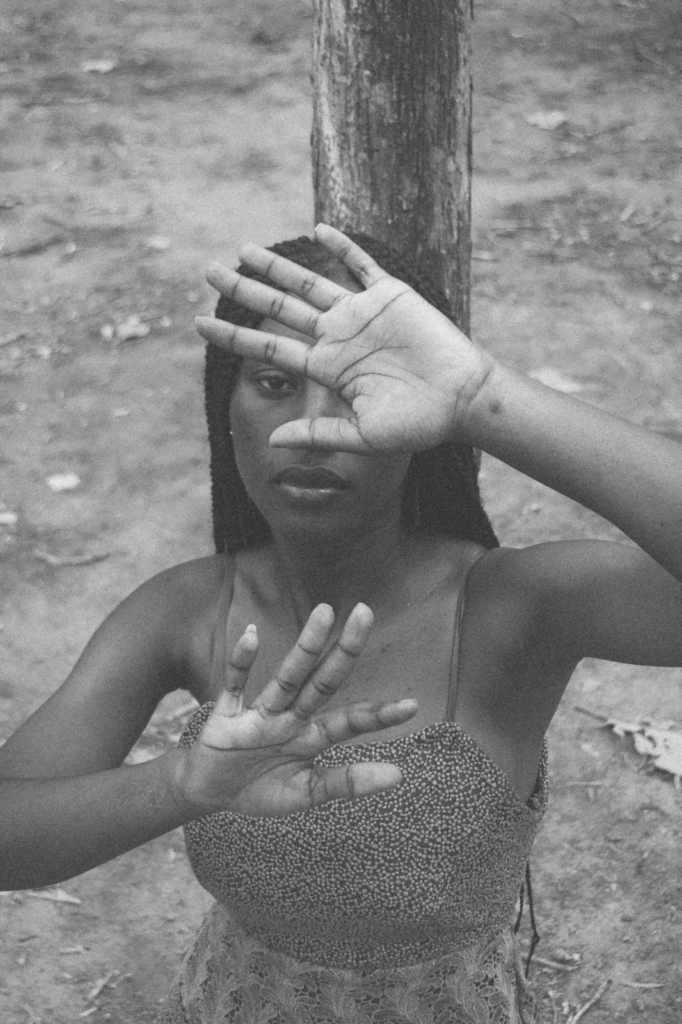Do you feel left out of the mental healthcare system?
Do you want a therapist who understands and accepts you?
Do you want a therapist you can feel comfortable expressing your full self to?
Do you want a black therapist in Houston you can truly relate with?
Therapy-seekers want a therapist who understands and “gets” them. For black women, this can sometimes look like having a black female therapist.
Like all therapy clients, black women want to feel seen, valued, and understood. They don’t want to spend time explaining systemic racism, sexism, or microaggressions. They want a therapist who understands their struggles and is culturally competent. At the very least, a therapist who is open to learning about you and your life experiences is needed.
In this post, we’ll talk about finding culturally competent care for black women in Houston Texas. Then, we’ll illuminate the unique challenges and common concerns that therapy can work to address. Let’s get started!
Table of Contents
What Is Culturally Competent Care?
It’s normal for therapy seekers to want a therapist who shares their background or looks like them. For women of color this can be especially important. After all, you want to feel like your therapist can relate to your experiences.
So, what is culturally competent care? Stanley Huey, a psychologist at USC, says culturally competent care is “treatments that account for values, norms, attitudes, beliefs, and practices of a racial or ethnic group.” This can in turn increase engagement and improve outcomes.
In practice, this looks like a therapist who is aware of their own worldview, assumptions, and biases. They are accepting of the worldview of others, and work to align therapy with that worldview. For example, if you believe in god, a culturally competent therapist won’t promote their own beliefs on that topic during therapy. They understand that it can be uncomfortable when someone tries to influence or change your beliefs, and so they respect yours.
Culturally competent care at its best addresses “experiences of internalized racism, [supports] a positive racial identity, [fosters] social cohesion and support among group members, and [incorporates] spiritual and faith-based coping strategies.”
Now you can see why this is so important!
A Black Female Therapist Can Help Significantly
With a shared culture, therapy may feel like it comes more easily. A black therapist may understand cultural nuances such as what’s taboo in the black community. Perhaps this is based on their lived experiences. For example, we might try to sweep our problems under the rug. We might hear or even say things like:
“Don’t tell the family secrets!”
“Just forget that it happened.”
“We talk to God, not therapists.”
“What we say in this house never leaves.”
As the old adage goes, “your secrets make you sick.” Having a culturally competent therapist to listen to you can be a huge relief.
Therapy for Black Women and the Black Community
Historically, therapy has often been viewed in the black community as a sign of weakness, or in a negative light. It’s important to recognize that part of this is likely due to real issues in medical care which have added to a sense of distrust. Because of this, many in the black community haven’t received the benefits of therapy. And that has led to a lack of impact in the black community.
Luckily, this is starting to change. As more and more black people begin to seek therapy, we start to break down these cultural barriers. We can finally access the therapy we deserve and heal our generational trauma. Who knows, you might even be the first in your family to access therapy!
What Issues Does Therapy for Black Women Address?
Moreover, many black women have experienced multiple forms of discrimination throughout their lives. In addition to racism, black women report significant experiences of sexism and sexual stereotyping. Add to that microaggressions in their social and professional lives. These experiences can leave a black woman feeling pain and confusion from the trauma they’ve endured.
Additionally, women of color can experience financial discrimination. Because their labor is often undervalued, the result can be financial inequalities such as lower pay for similar work compared to a white colleague. Below are explorations of unique challenges for black women.
Adultification Bias
One unique experience of black women (and girls) is what’s called the adultification bias. Black girls, as young as age 5 and throughout adulthood, are often assumed to be more resilient than their same-aged white counterparts. This includes being seen as less needy for protection and safety in ways that can both push black girls to work harder, but also leave them without the support or protection they may need.
Today, many black women in Houston seek therapy for anxiety, depression, support with boundaries, racial trauma, and more. And the number one reason black women seek therapy is feelingoverburdened and overwhelmed. Often this has to do with the “Strong Black Woman” stereotype (which we discuss below.)
Thankfully, this is starting to change. With the help of online directories such as therapyforblackgirls.com, more black women are finding culturally competent therapists who they feel connected with.

Black Women Can Face Unique Challenges
As you may know, black women face microaggressions from others on a frequent basis. They are called microaggressions because they are subtle and often hard to pinpoint. However, they can leave a sense of a boundary being crossed.
Some microaggressions include:
- Having your work or intelligence questioned
- being interrupted in conversation
- being gaslit about your worth
- having your hair touched
- unwanted sexual touch
- feeling “tokenized”
and more.
Subtle racist attitudes often lead to microaggressions from others. These are attitudes like the assumption that the highest-ranking person in an organization is white (or can’t be black). Or that a black person with a qualification (such as a doctoral degree) isn’t as qualified as a white counterpart. In fact, it’s not uncommon for high-ranking black people to notice that they’re the only black person in a room (such as in a board-meeting.)
At the same time, sexism is a big issue that black women face. Whether they are treated by others as a sexual object or treated as less-than due to their gender, sexism has a negative effect on the mental health of black women.
Yet a third form of discrimination against black women is financial. Because sexism and racism lead to lower pay for equal work, black women can find themselves stressed financially.
Luckily, a black therapist will possess an intuitive understanding of these issues and help you process them safely.

Stereotypes Affect the Mental Health of Black Women
There are three main stereotypes that black women face. These are the Strong Black Woman, the Angry Black Woman, and the Sexually Objectified Vixen.
Strong Black Woman
This is a stereotype that has positives and negatives. For instance, being seen as strong can be a good thing at work or at church. After all, who doesn’t love a dependable, resilient, and reliable colleague?
Yet, this stereotype prevents many black women from being taken seriously when they
present with a mental health challenge. They might hear things such as:
“You can handle it”
“Push through”
“You’re just trying to get attention.”
This enforces the idea that because black women are strong and resilient, they don’t need support or self-care for themselves. The American Psychological Association says “black women are often pigeonholed as strong caregivers and providers who shoulder others’ burdens and do not share their own.”
The Strong Black Woman is so often expected to be there for their partners, children, and coworkers. These expectations are hard to break away from and the lack of support can cause psychological distress.
Angry Black Woman
From Forbes Magazine: “This pervasive stereotype… characterizes Black women as more hostile, aggressive, overbearing, illogical, ill-tempered and bitter.”
The problem with this stereotype, aside from its robbing individual black women of their humanity, is that it attributes anger to a personality defect.
Not only does this prevent problems from being addressed with respect, but it undermines the worth of black women in a culture or organization. This stereotype assumes that there are no legitimate reasons for a black woman to be angry. Further, this stereotype can be used to dismiss black women when they are appropriately voicing concerns, opinions or feedback that may not be aligned with the status quo.
Sexually Objectified Vixen
In her August 2018 Ted Talk, Frances Cudjoe-Waters said she did a Google search for “black mothers in film,” and was shocked to see that the results were all porn.
While this has changed in the last 5 years, the stereotype remains: Black women can be seen merely as sexual playthings – objects – not individuals with hopes, dreams, love and aspirations.
This highly damaging stereotype of black women as worthy of only sexual attention is promoted in movies, music videos, art, and other aspects of mainstream culture. To move on from this harmful stereotype, we need to take individual responsibility for the ideas we subscribe to, but also to show more balanced images of black women in our culture. In these ways, we can stop sending this harmful message to people within our society.

How is Therapy for Black Women Different?
Now that we’ve covered some of the challenges that black women face, let’s talk about what therapy for black women requires.
For one, therapy for black women needs to have a culturally affirming perspective. While some explanation of your life unique lens is expected, you shouldn’t have to use large portions of your therapy sessions to explain your culture and correct damaging stereotypes and assumptions about yourself to your therapist. This takes time from your processing of emotions. And it may cause you to feel disconnected from your therapist.
Women of color make up less than 5% of psychiatrists, psychologists and social workers in the U.S. Having a therapist who is also black (or has experienced the reality of being a minority race in white-dominated America) can be affirming and helpful.
You don’t want your therapist enacting microaggressions during sessions, commenting on your skin or hair, or making thoughtless remarks about your level of intelligence, or questioning your achievements. Whatever therapist you choose to do therapy with needs to understand how racism and sexism, in individual and systemic forms, can impact your mental health and daily experiences.
As a black woman, you’ve never had the luxury of not thinking about race and gender. A therapist who gets that will be able to help you heal from your experiences.
Can Therapy for Black Women Help Me?
Here at Destination Therapy, we provide therapy for black women in Houston on a weekly basis and our counselors bring a culturally informed view to helping you achieve mental health and balance. We want to build a relationship where you can say that we get you and your struggles. We can empathize with what it’s like to work twice as hard for half the reward, and we’re here to help you heal from burnout, being stereotyped, and the effects of racial trauma.
Whatever your concerns, our therapists will help you make sense of your experiences in a way that brings healing and peace. Processing your emotions in this way can help you feel whole, healthy, and balanced.
If you’re ready to start your journey, book a free consultation call and our therapists will reach out to you.
-Monique Dunn, Founder of Destination Therapy
P.S. If you’ve found this blog helpful, drop a comment below!


